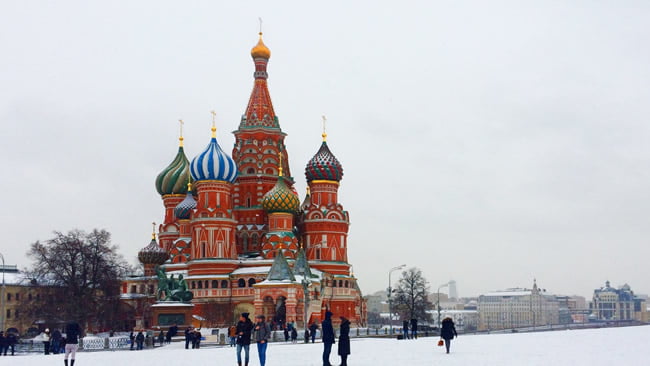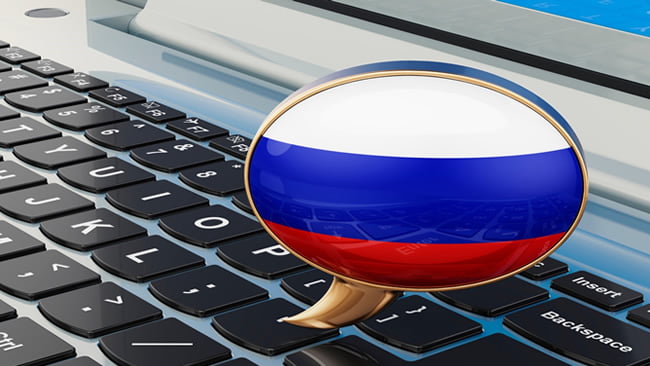Russian Translation Demand Around the World
Over 250 million people speak the Russian language around Eastern Europe and Russia. It is considered one of the most in-demand languages for trade, international relations, and diplomacy. In fact, it is the second most used language on the internet according to “WSTechs” Web Technology Survey. So what causes high Russian translation demand?
Russia has a low English Proficiency Index rate, which creates a lot of demand for translation and localization of content in order to step up international business goals.

Tips to Enter the Russian Market – Cultural Awareness
Russian is the main language spoken in Russia, there are very few people that speak English. In fact, according to Russia Beyond, only 3% of the population can speak fluent English, therefore translation and localization tools are key aspects for successful business expansion. It is vital to understand cultural differences and make sure translated content is customized to the existing target market, emphasizing the importance of terminology and various nuances.
One suggestion that could certainly make a difference and the business process easy is learning the language! As you can imagine, this could drive connections and help reach the desired result much faster.
Patience is one of the most important attributes when doing business with Russian companies. You will need it to navigate the bureaucracy that sometimes could slow things down. Get ready! To win the projects, you have to learn to be patient when counterparts are late for business meetings, as it is often applied as a negotiation tactic. Remember, Russians like to test each other’s patience!
And of course, let’s not forget about some clichés, as they exist for a reason! Immerse yourself into the Russian culture, to help balance out the formality of business communication. Go see the Russian ballet, experience Russian Banya (traditional Russian bathhouse), or taste Russian cuisine accompanied by a shot of vodka to keep you warm and energized. Your cultural experiences can be great conversation starters before your business interactions, to set a relaxing atmosphere.
Top Industries with High Russian Translation Demand
Oil & Gas
One of the top leading industry exporters is the Oil & Gas sector. The Middle East and Russia continue to prosper and sign more energy deals. Consider that business transactions may require different translators based on language (source & target) combinations, i.e., from Russian to English, then English to Arabic, and vice versa. Translators need to have expertise in the legal sector, as well as the ability to localize purchase contracts, and above all, must be fluent in Oil & Gas subject matter. Some other aspects in knowledge would include technicalities such as Oil & Gas production services, financial reporting documents, drilling services, oil well-cementing services, etc.
Metal & Mining
The second biggest sector after Oil & Gas is the Metal & Mining industry. Russia is the world’s top producer in this sector, with a high volume of natural mineral reserves such as diamonds, platinum, palladium, gold, coal, and iron ore. These represent around 3-5% of the country’s GDP, with 16% of metal productions exported. Of course, only a dedicated subject matter linguistic team could handle this kind of industry work.
Gaming & Information Technology
Russia is becoming more popular in the IT industry and Tech community. The language is very useful in scientific and technical literature, such as physics, engineering, and material science. According to Forbes, Russia has the fifth largest app market in the world, with over 84 million mobile users. Social networking and gaming apps have been driving a rapid increase in revenue and were downloaded by European countries, with more than 1.6 billion downloads in 2016. These results have been attracting a lot of foreign gaming app publishers to the Russian market as well as potential recognition and opportunity for international expansion. It is important to localize apps into Russian and English to expand to other app stores and reach new target audiences.

Russian to English (vice versa) Website Translations
Localizing your website could be challenging, localizing your website into Russian – even more!
There are a lot of aspects to consider, starting with character expansion. Don’t forget that the longest Russian word is 35 letters. Therefore, expect that your translated text will be much longer in terms of word count, than initial English. This might affect your design, as the content can expand up to 15%, leaving extra space for Cyrillic script will help avoid layout issues after translation.
Translation of Russian content can be challenging and may require thorough preliminary research. So, showcasing the brand gradually can help shape the demand for your product. Make sure that social media handles exist at the bottom of your landing page, Russian clients love scrolling social media feeds before making their decisions.
Keep in mind that you may need to do transcreation of your English content to ensure all elements of the website are relevant and resonate with the Russian audience. Etymologically speaking, transcreation is a blended word that merges the terms translation and creation.
It might be hard adapting to Russian culture and the small details. In Russia, we say: “The first pancake always comes out in a lump.” Be patient and try to understand the differences and I guarantee you will notice success!
To find out more information about Russian website translation, transcreation, and desktop publishing, follow the link below: https://www.globalizationpartners.com/resources/russian-website-translation/
Conclusion
In this blog, we familiarized various industries and dimensions with Russian translation demand. The importance of being culturally educated is paramount when entering the Russian market. It is key to successful business achievement.
